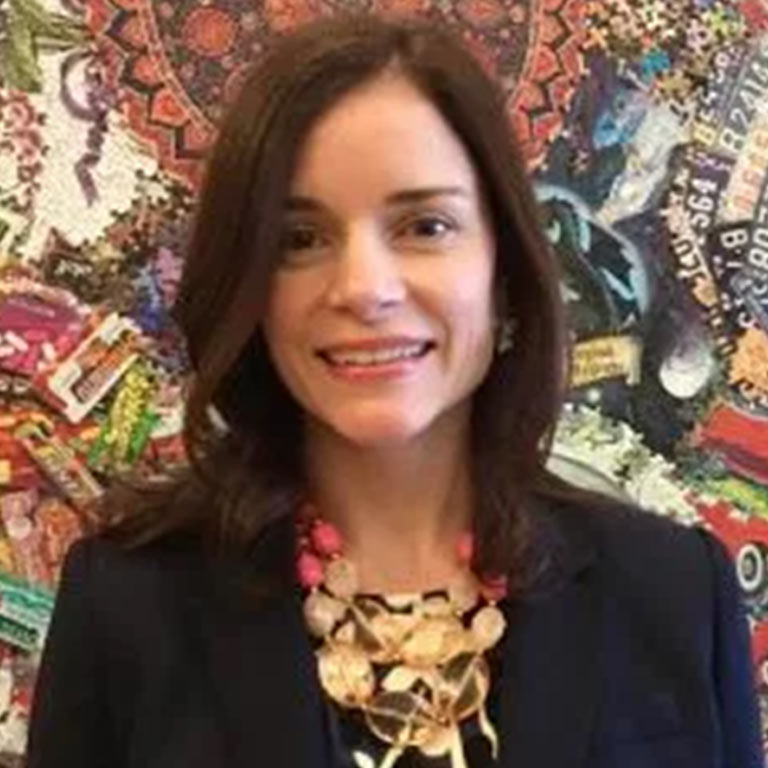Dr. Jessica C. Gerrity serves as a Vice President in the Higher Education practice at McAllister & Quinn, a consulting firm in Washington, DC. In this role, she manages a broad range of the firm’s higher education clients, and helps to develop and implement the practice’s strategic goals. She works regularly with higher education clients—college and university presidents, provosts, deans and faculty and staff—to identify strategic opportunities for federal and foundation funding. She manages project teams that consist of McAllister & Quinn managing directors, writers, reviewers, editors, faculty members and campus administrators.
Before joining McAllister & Quinn, Dr. Gerrity was the Research Manager for the Congress and Judiciary Section in the Government and Finance Division at the Congressional Research Service (2010-2014), where she led research and consultative work for Members of Congress and their staff. Prior to her work at the Congressional Research Service, she was Assistant Professor of Political Science at Washington College (2007-2010), where she taught courses in American politics and public policy. She was an American Political Science Association Congressional Fellow in the office of Senator Jack Reed, specializing in healthcare policy. Dr. Gerrity has received several competitive grants and fellowships and her research is published in a number of scholarly journals and books such as The British Journal of Political Science, Politics and Gender, Politics and Policy, Congress and the Presidency and White House Studies. She worked as a Research Assistant at the Center on Congress at Indiana University and as a Senior Research Assistant at The Brookings Institution in Washington, DC.
When asked how her time at IU helped her along her career path, Dr. Gerrity noted that her training in the political science department was “invaluable” insofar as “life outside of the academy also requires that I write well, formulate clear and testable research questions, and evaluate others’ work. I tend to see the world through a social science lens, which enhances my work with an analytical and critical eye. More than anything, my doctoral training taught me how to pursue many projects at once, a critical professional skill integral to managing people and processes.” She also notes that in her current role, clients appreciate that she understands what it’s like to be a faculty member and that she was trained at the doctoral level. “It is a distinct advantage to understand the challenges and various dimensions of higher education as an insider.” Dr. Gerrity also enjoys exercising her political science teaching skills as an adjunct professor in several Washington, DC, academic internship programs, including the inaugural Indiana University Washington, DC, program in the Spring 2019 semester, where she will teach a course titled “Bureaucratic Politics.” Dr. Gerrity continues to engage in scholarship when opportunities arise; for instance, along with a co-author, she published a piece in the Washington Post Monkey Cage and published an article in White House Studies in 2018.
Among Dr. Gerrity’s most cherished memories from her time as an Indiana University graduate student in the political science department include being a student in graduate seminars taught by Dr. Ted Carmines, her dissertation advisor, and Dr. Marjorie Hershey, also a dissertation committee member. Dr. Gerrity explains that Ted and Margie taught her how to ask good questions that are well-grounded in theoretical perspectives and add to a scholarly discussion in significant ways. Both taught Dr. Gerrity how to think critically about research questions and research design. She writes, “Ted helped me understand how to be an advocate for my work and think strategically about my professional choices. Ted invited me to participate in several professional opportunities that allowed me to grow as a scholar and opened professional doors for me that would not be possible without his introductions.” Of Dr. Margie Hershey she writes, “Margie shared deeply meaningful advice on how to be a professional balancing many different obligations that I still use to this day, one of which was how to be a good skimmer, how to write an effective summary, and how to take on research projects that can be completed given my other obligations. Most importantly, Margie taught me how to use precise language in my research and how to ask the right questions that lead to the most robust questions. Margie has continued to be a sounding board for my professional life. I will never forget Ted and Margie’s generosity and attention and I strive to make my students and the individuals who work for me feel similarly supported.”
Another pivotal experience for Dr. Gerrity in graduate school was working in the Political Science Research Collection for Fenton Martin. Dr. Gerrity writes, “The space in the Chapel at Woodburn Hall was beautiful and inspiring—it was breathtaking to be surrounded by a vast and complete collection of political science books and resources, all contained in a peaceful chapel with stunning stain glassed windows that glowed when the sunlight hit them. Fenton Martin also included me in a running group that helped to keep me healthy and sane while persevering through preliminary exams and the dissertation. I will forever be grateful for the advice she imparted on those runs.” The experience of working in the research collection allowed Dr. Gerrity to interact with graduate students and faculty in the department and opened professional and personal doors that are still strong today.
Dr. Gerrity also forged many friendships and mentor relationships among other graduate students in the political science department that resulted in co-authorships and important professional experiences that are significant in Dr. Gerrity’s life today.

 The College of Arts
The College of Arts